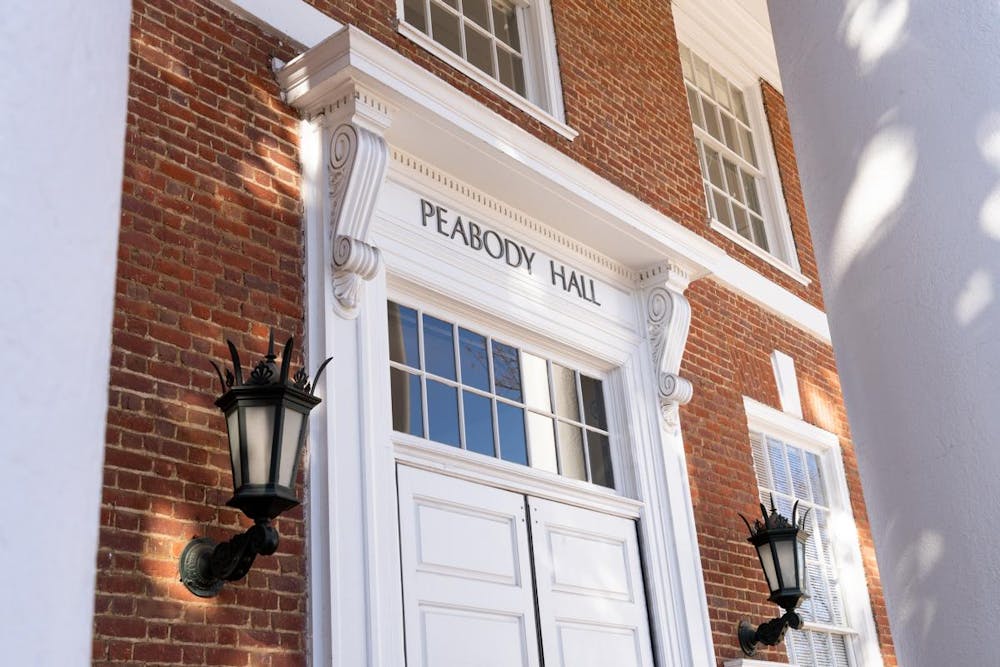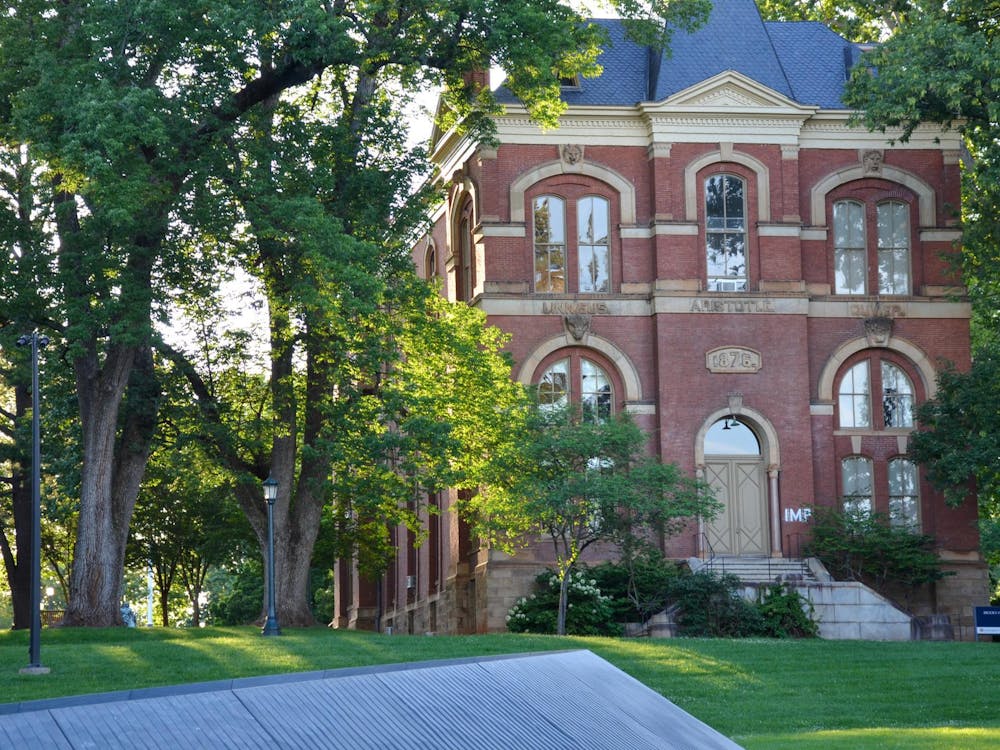University leadership has chosen to terminate its Special Status Organization agreement with the University Guide Service as of Wednesday, according to a written statement from Vice Provost for Enrollment Stephen Farmer.
“[The decision to terminate the SSO agreement] followed more than a year of working with UGS to address multiple challenges the organization faced as it worked to meet the expectations of the special status agreement,” Farmer wrote.
In his statement, Farmer said that the University will continue to support the organization with its current funding and assigned University space through the end of this academic year.
Special Status Organizations are student-run organizations which have special agreements with the University allowing them to act on behalf of the University. Under the SSO agreement, the Guide Service conducted admissions and historical tours for prospective students and community members. After having its agreement suspended in the fall semester due to administrative concerns over quality and consistency of tours, the Guide Service worked with the University admissions office to develop a training plan that would allow it to reestablish University-sanctioned admissions tours.
Guide Service leadership told The Cavalier Daily in November that despite clear plans to reinstate sanctioned admissions tours, the University had not indicated when historical tours would be reestablished. In response, the Guide Service chose to begin conducting historical tours independently of the University, while maintaining its SSO agreement in regard to admissions tours.
Farmer cited a lack of participation in the admissions training plan by Guide Service members as the reason for the termination. He noted that the 15 Guide Service members who had completed the University’s admissions training plan could give tours for the admissions office as volunteers or paid interns.
“Despite the incredibly hard work of Guides leaders, when the performance improvement plan concluded at the end of the fall semester, only a few members of the group had made it through the process,” Farmer wrote. “Given the time and effort it took everyone to achieve these limited results … I determined that the best way forward was to focus on developing opportunities for current students to lead and serve through the Office of Undergraduate Admission.”
Throughout the suspension, the University has continued to develop a self-guided, virtual history tour. Farmer said the reason for this was to develop a more comprehensive historical tour, which would include a variety of faculty and student perspectives. He said that the University invited Guide Service members into the process of developing this self-guided tour, but that Guides leaders had declined these opportunities.
“The Office of the Provost is currently collaborating with U.Va. faculty on the development of the new tour, and they are committed to including students in the process,” Farmer wrote. “Although [Guide Service] leaders have so far declined repeated invitations to participate in this collaboration, the invitations remain open.”
Farmer also said that the Guide Service may still conduct tours independent of University support going forward. He also noted that the Guide Service could choose to become a Contracted Independent Organization — student clubs which provide educational or social membership opportunities but are not considered official representatives of the University.
This termination comes as University-wide student elections approach. For this election, individual Guide Service members sponsored a referendum calling on the University to reestablish sanctioned historical tours and condemned the University for its suspension of the organization. The referendum asks the University to increase publicization and funding for the Guide Service. In his statement to The Cavalier Daily, Farmer did not reference this referendum.
Farmer expressed regret that the termination was necessary, but noted that the Guide Service has sought more independence than an SSO agreement generally permits.
“Although I regret that we have had to take this step to discontinue [the Guide Service’s] special status agreement, I hope it will in time help the leaders and members of the Guides,” Farmer said. “Over the last few years, the organization has sought more independence from the University’s administration than special status agreements typically allow.”
Guide Service leadership did not provide a comment at the time of publication.







